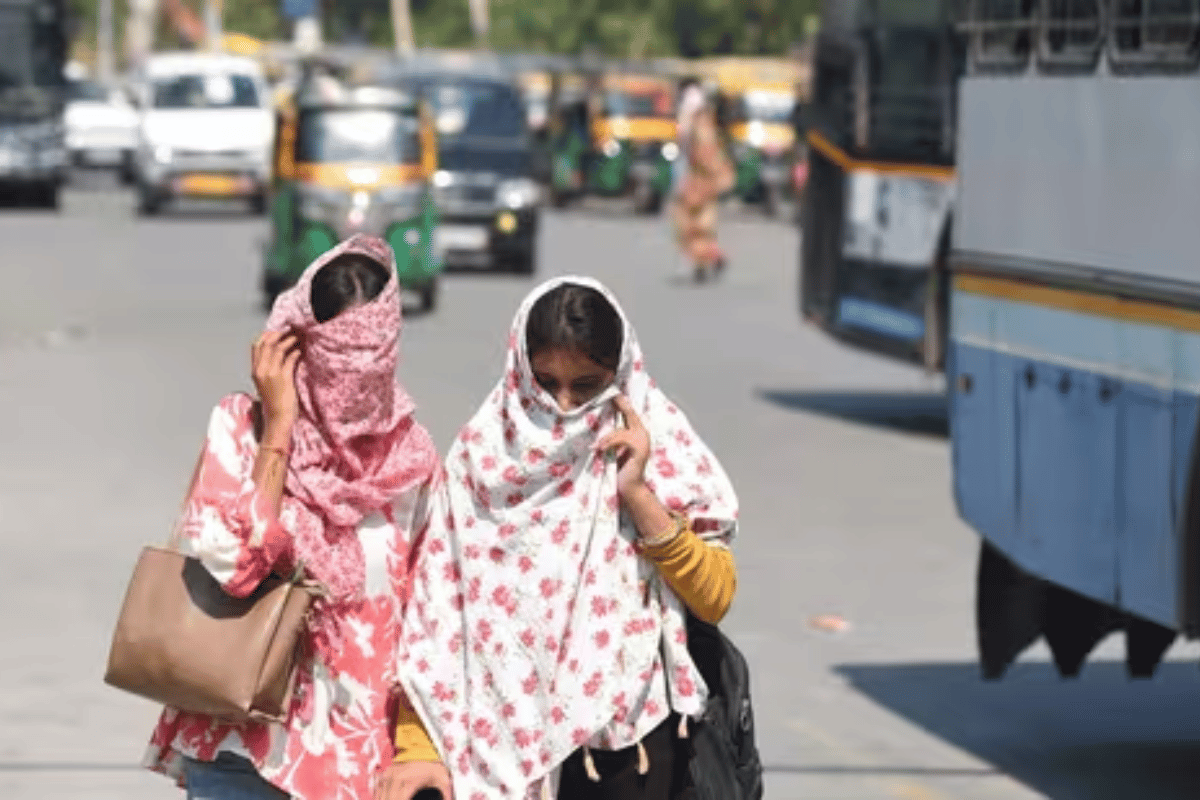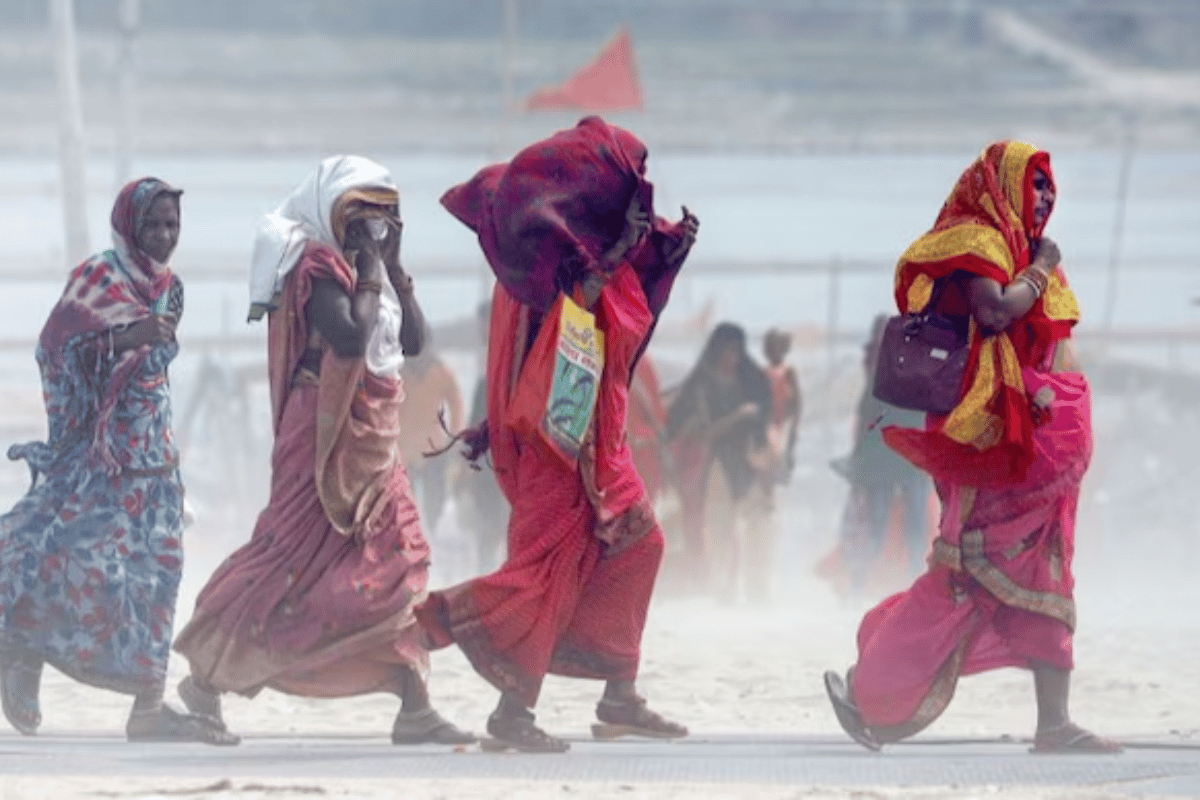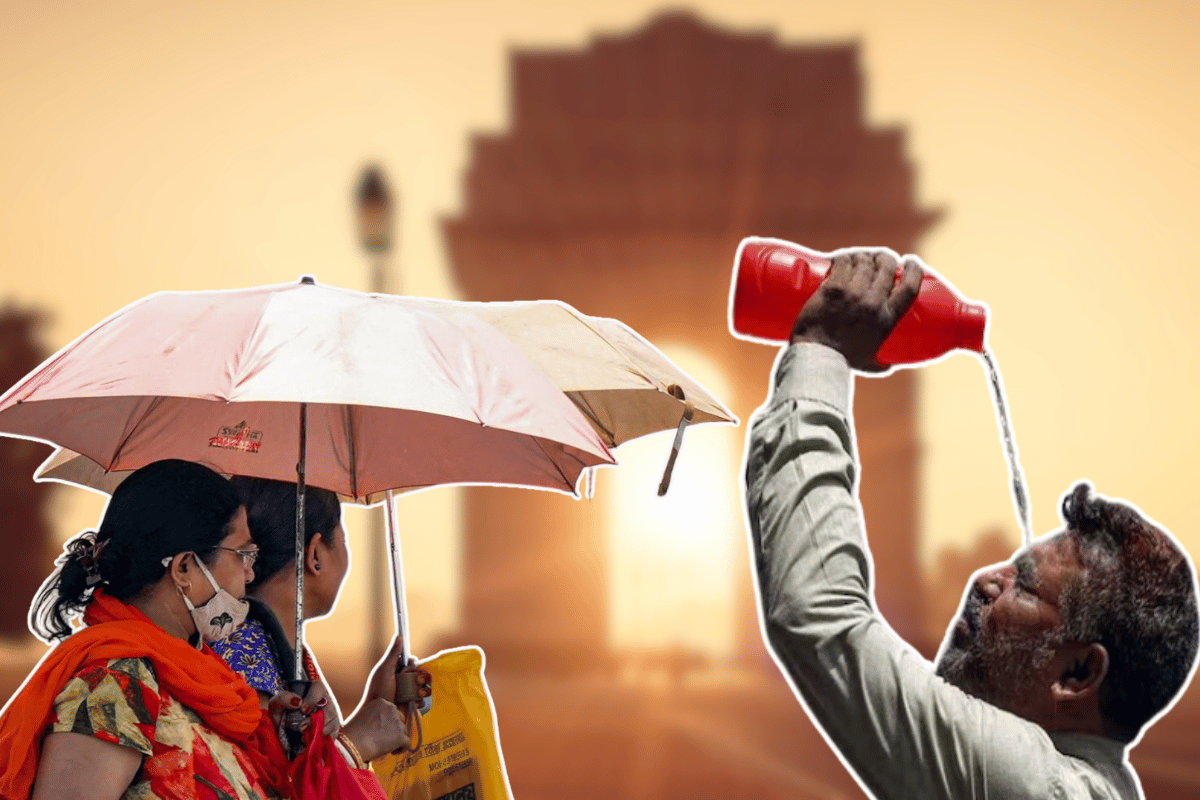On 29 May, Delhiites witnessed an event unlike any other in the city’s history. The national capital experienced its hottest day ever recorded, with temperatures soaring to a sweltering 52.3 degrees Celsius (126.1 degrees Fahrenheit) in Mungeshpur, as reported by the India Meteorological Department (IMD) at 2:30 PM. This record-breaking heatwave in Delhi surpassed all previous highs, making it the hottest day ever documented in India.
A Day of Scorching Heat
The scorching heat enveloped Delhi throughout the day, turning asphalt into a shimmering mirage and leaving residents gasping for breath. Even basic activities became a challenge under the relentless sun. Reports suggested a deserted cityscape, with people seeking refuge indoors whenever possible.
While Mungeshpur recorded the highest temperature, other parts of Delhi also experienced extreme heat. Najafgarh, Narela, and Pitampura reported temperatures exceeding 47 degrees Celsius (116.6 degrees Fahrenheit), further amplifying the heatwave‘s intensity. This severe heatwave in Delhi added to the woes of Delhi residents, who were already grappling with the ongoing dry season.
Causes of The Record-Breaking Heat


Experts attributed the unprecedented heatwave in Delhi to several factors. One significant contributor was the arrival of hot and dry winds blowing in from Rajasthan. These winds, coupled with the lack of rainfall and minimal cloud cover, created a furnace-like environment in Delhi. Additionally, the urban heat island effect, a phenomenon where cities tend to be significantly warmer than surrounding rural areas due to the abundance of heat-absorbing concrete and asphalt, likely exacerbated the situation.
Climate change is also believed to be playing a role in the increasing frequency and intensity of heatwaves across the globe. Rising global temperatures create conditions conducive to extreme weather events, and Delhi’s record-breaking heatwave may be a stark reminder of the potential consequences of climate inaction.
Impact of The Heatwave
The scorching heatwave in Delhi had a significant impact on Delhi and its residents. The extreme temperatures posed a serious health risk, particularly for vulnerable populations such as children, elderly individuals, and those with pre-existing medical conditions. Heatstroke, dehydration, and exhaustion were major concerns, and hospitals reported an increase in heat-related illnesses.
The heatwave in Delhi also disrupted daily life in the city. Power outages became more frequent as the strain on the electricity grid increased due to surging air conditioner usage. Public transportation services were affected as well, with some routes experiencing delays or cancellations.
A Much-Needed Respite
Fortunately, Delhi received some respite later in the evening as rain showers brought a much-needed drop in temperatures. While the rain wasn’t enough to break the heatwave entirely, it offered temporary relief and helped to bring down the peak nighttime temperatures.
Looking Ahead: Preparing For Future Heatwaves


The record-breaking heatwave in Delhi serves as a stark warning of the dangers posed by climate change. It highlights the need for improved preparedness to deal with such extreme weather events in the future.
Here are some key steps that can be taken:
Mitigation Strategies
Investing in renewable energy sources and reducing greenhouse gas emissions are crucial steps to mitigate climate change and prevent future heatwaves from becoming even more severe.
Urban Planning
Implementing heat-resistant urban planning strategies, such as planting trees, using reflective materials for buildings, and creating green spaces, can help to reduce urban heat island effects and create a more comfortable living environment.
Public Awareness Campaigns
Educating the public about the dangers of heatwaves and promoting heatstroke prevention measures can save lives. This includes encouraging people to stay hydrated, avoid strenuous activity during peak heat hours, and seek air conditioning or cool spaces during extreme heat.
Improved Early Warning Systems
Developing and implementing robust early warning systems to alert people about impending heatwaves can allow them to take necessary precautions and minimize the risks associated with extreme heat.
By taking proactive measures, Delhi and other cities around the world can build resilience against future heatwaves and ensure the safety and well-being of their residents.
The scorching heatwave of 29 May will undoubtedly be etched in the memory of Delhiites. It serves as a wake-up call to address the challenges of climate change and prioritize measures to mitigate its impact on our planet and our lives.
















